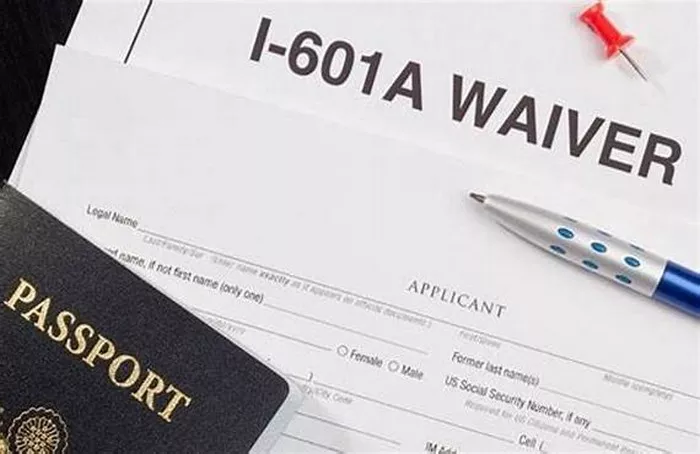The I-601A Provisional Unlawful Presence Waiver is a critical step for many immigrants seeking lawful status in the United States. It offers an opportunity for certain undocumented individuals to apply for a waiver of unlawful presence while remaining in the U.S. before departing for consular processing of their immigrant visas abroad. However, one of the most common frustrations applicants face is the lengthy processing times associated with the I-601A waiver. In this article, we will explore the reasons behind the delays and offer insights into what applicants can do to navigate the process more effectively.
Understanding the I-601A Waiver
Before delving into the reasons for delays, it’s essential to understand the purpose and significance of the I-601A waiver. This waiver is designed for individuals who are otherwise eligible for an immigrant visa but are barred from re-entering the U.S. due to unlawful presence. By obtaining the waiver, applicants can potentially overcome this barrier and proceed with their immigration process without facing lengthy separation from their families.
The eligibility criteria for the I-601A waiver include demonstrating extreme hardship to a qualifying relative, typically a U.S. citizen or lawful permanent resident spouse or parent. Additionally, applicants must meet other requirements, such as being physically present in the U.S., having an approved immigrant visa petition, and showing that their inadmissibility is solely due to unlawful presence.
Factors Contributing to Delay
While the I-601A waiver process offers hope for many immigrants, the delays in processing can be discouraging and stressful. Several factors contribute to these delays, including but not limited to:
1. Backlog and Resource Constraints: The U.S. Citizenship and Immigration Services (USCIS) handles a significant volume of immigration petitions and applications, leading to backlog issues. Limited resources and staffing constraints further exacerbate the situation, resulting in slower processing times for all types of immigration benefits, including the I-601A waiver.
2. Complexity of Cases: Each I-601A waiver application involves a thorough review of the applicant’s circumstances, including their immigration history, family ties, and the potential hardship they or their qualifying relative(s) would face if the waiver were denied. The complexity of these cases can lead to additional scrutiny and longer processing times as adjudicators carefully assess the merits of each application.
3. Requests for Additional Evidence: USCIS may request additional evidence or documentation to support an I-601A waiver application. This could include medical records, financial documents, or affidavits demonstrating the hardship claimed. Delays often occur when applicants need time to gather and submit this requested evidence, or when USCIS takes time to review the additional materials.
4. Administrative Processing: In some cases, applications may be subject to administrative processing, which involves additional checks or investigations beyond the standard review process. While administrative processing is intended to ensure the integrity of the immigration system, it can result in significant delays for applicants awaiting a decision on their waivers.
5. Policy Changes and External Factors: Changes in immigration policies, shifts in enforcement priorities, or external factors such as government shutdowns or changes in leadership can impact processing times for I-601A waivers. Uncertainty surrounding immigration laws and procedures can create additional hurdles for both applicants and USCIS adjudicators.
Tips for Managing the Delay
While delays in the I-601A waiver process can be frustrating, there are steps that applicants can take to manage the situation more effectively:
1. Stay Informed: Keep abreast of updates and changes to immigration policies and procedures by regularly visiting the USCIS website or consulting with reputable immigration attorneys or organizations. Understanding the latest developments can help you better navigate the process and set realistic expectations.
2. Maintain Communication: If you receive a request for additional evidence or information from USCIS, respond promptly and thoroughly. Clear and concise communication can help expedite the review process and minimize unnecessary delays.
3. Seek Legal Assistance: Consider consulting with an experienced immigration attorney who can provide guidance and support throughout the I-601A waiver process. An attorney can help you compile a strong application, respond to requests for evidence, and navigate any challenges or complications that arise.
4.Document Everything: Keep detailed records of all communications, submissions, and interactions with USCIS, including copies of forms, letters, and emails. This documentation can serve as valuable evidence in case of any discrepancies or issues that arise during the review process.
5. Practice Patience: While it’s natural to feel anxious or impatient during the waiting period, try to maintain perspective and exercise patience. Remember that USCIS is tasked with processing a high volume of applications, and delays may be unavoidable due to the complexities involved.
Conclusion
The I-601A waiver process plays a crucial role in helping undocumented immigrants pursue lawful status in the United States. However, delays in processing can pose significant challenges for applicants and their families. By understanding the factors contributing to these delays and taking proactive steps to manage the process, applicants can navigate the I-601A waiver process more effectively and increase their chances of a successful outcome. While the journey may be arduous, perseverance, patience, and informed decision-making can ultimately lead to achieving the desired immigration goals.


